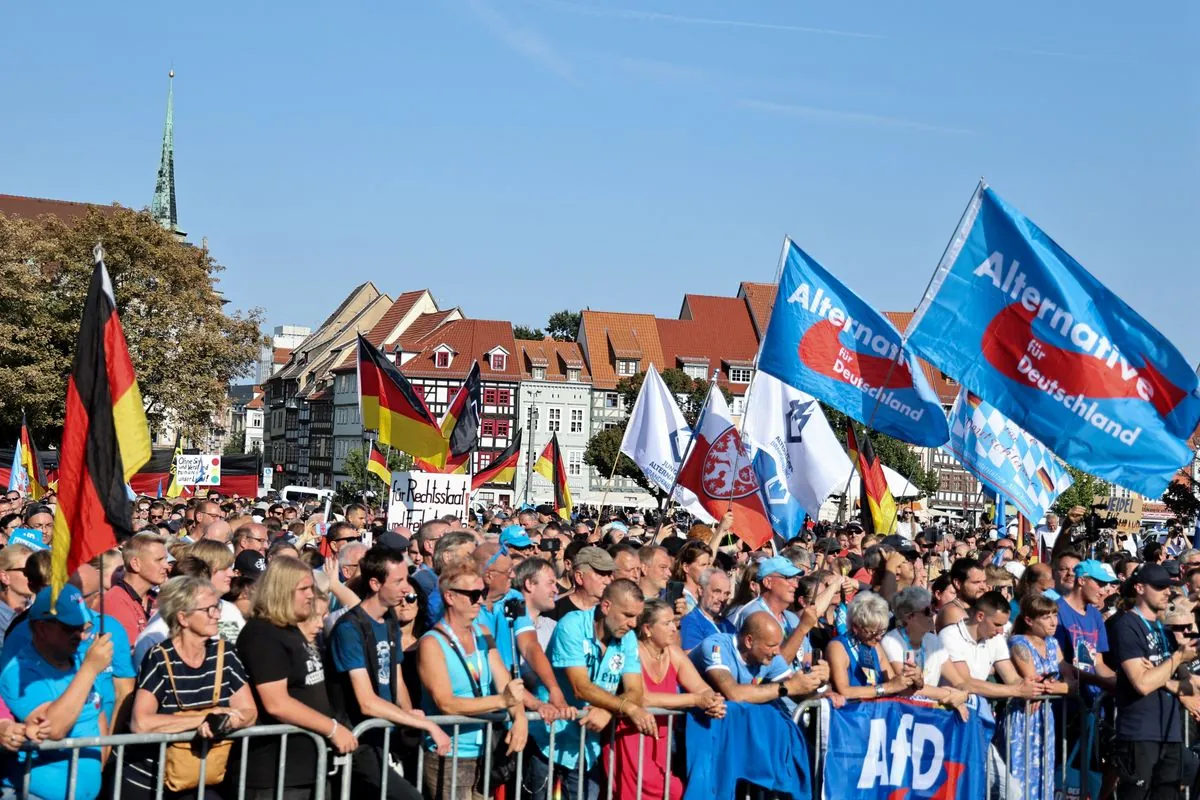In recent local elections in eastern Germany, the far-right Alternative for Deutschland (AfD) party achieved unprecedented success, capturing nearly a third of the vote in Thuringia and Saxony. This outcome has raised concerns about the resurgence of extreme right-wing ideologies in a country still grappling with its Nazi past.
The AfD's popularity, especially among young voters, has surprised many observers. In Thuringia, 37% of young voters supported the party, while in Saxony, the figure reached 31%. This trend was also evident in the European parliamentary elections earlier this year, where the AfD outperformed all three parties of Chancellor Olaf Scholz's coalition among 16-24 year-olds.
"Our country cannot and must not get used to this. The AfD is damaging Germany. It is weakening the economy, dividing society and ruining our country's reputation."
The rise of the AfD in eastern Germany is attributed to various factors, including economic disparities, concerns about immigration, and a sense of being overlooked by mainstream politics. Despite recent economic growth in the region, with global companies like Tesla and Intel investing in eastern states, many residents still feel left behind.
Björn Höcke, the controversial leader of the AfD in Thuringia, has been a central figure in the party's success. His rhetoric and tactics have drawn comparisons to Nazi-era propaganda, raising alarms among those who fear a return to Germany's darkest chapter.
The AfD's success has not gone unchallenged. In cities like Erfurt and Weimar, opponents of the party have voiced their concerns and organized counter-demonstrations. However, the party's ability to mobilize young supporters through social media platforms like TikTok has proven effective.
As Germany approaches its federal elections in 2025, the political landscape appears increasingly polarized. While some believe the AfD's success will remain limited to the east, others worry about the potential for far-right ideologies to gain traction nationwide.
The situation in eastern Germany serves as a reminder of the ongoing challenges faced by the country nearly 34 years after reunification. As the debate over immigration, national identity, and economic equality continues, Germany finds itself at a crossroads, balancing its commitment to democracy with the need to address the grievances that have fueled the AfD's rise.
